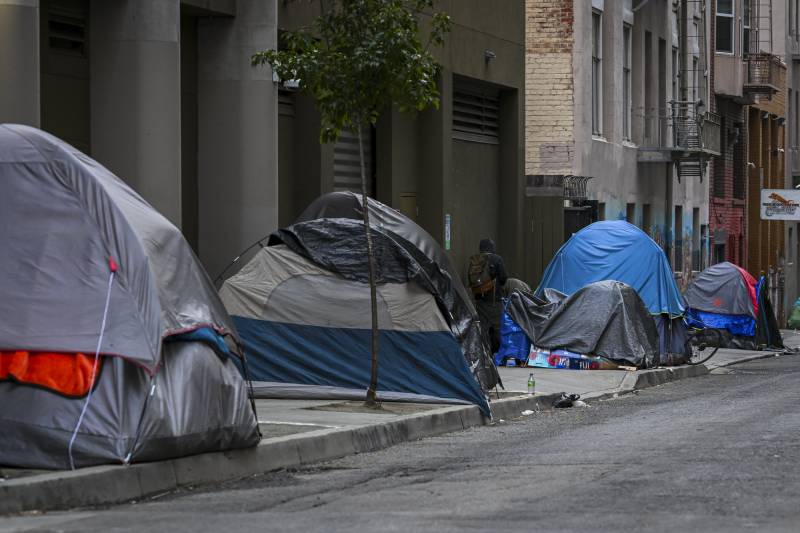Last month, the Ninth Circuit clarified that people who reject a valid shelter offering cannot be considered involuntarily homeless and, therefore, the city can enforce its laws against public sleeping and camping on sidewalks and in parks, in those cases.
In reviewing San Francisco’s appeal, Ryu asked the city to report how it trains law enforcement and street clearing crews, and to also identify which city workers have and have not been trained on the specifics of the injunction.
Regardless of the injunction, the city has been able to carry out most of its street cleaning and public safety operations, and can enforce many of its laws governing street and sidewalk activity. For example, under the injunction, the city can still clear encampments for accessibility, such as in the case of an emergency or providing room for a wheelchair passage, if they give 72 hours notice. The injunction does not impact law enforcement around health and safety codes, including drug use, and the city can still clear encampments for certain health or safety reasons.
Gov. Gavin Newsom — formerly the mayor of San Francisco — meanwhile has also criticized the judge’s rulings in San Francisco’s homelessness lawsuit, as well as similar cases and rulings that have provided the basis for Ryu’s decisions.
Those cases include Martin v. Boise and Johnson v. Grants Pass (PDF), which both have directed cities not to force unhoused residents to move unless they are offered shelter.
On Friday, Newsom issued an amicus brief (PDF) asking the U.S. Supreme Court to review the Grants Pass, Oregon case and urging the court to give cities more freedom to clear encampments.
“While I agree with the basic principle that a city shouldn’t criminalize homeless individuals for sleeping outside when they have nowhere else to go within that city’s boundaries, courts continue to reach well beyond that narrow limit to block any number of reasonable efforts to protect homeless individuals and the broader public from the harms of uncontrolled encampments,” Newsom said in a press announcement. “It’s time for the courts to stop these confusing, impractical and costly rulings that only serve to worsen this humanitarian crisis.”
Breed wrote on Monday on Medium that “over the next few weeks we will be reiterating and updating [city workers’] training and making sure they understand what they can and cannot do in line with the injunction and Ninth Circuit’s recent clarification.”
Shroff, the plaintiffs’ attorney, said that there’s never been any dispute over the definition of involuntarily homeless, and agreed the city can enforce sit-lie laws when someone rejects an appropriate shelter option.
He disagreed, however, with the idea that shelter is commonly rejected. Instead, he argues that the city has continued to sweep encampments without following protocols outlined in the city’s own policies, which include to offer shelter and to “bag and tag” personal belongings rather than disposing of them.
“The shelter system is at capacity every single day of the year because there is such a high demand for shelter and because for decades the city has failed to meaningfully invest in affordable housing for vulnerable residents of the city during the time of a tech boom and unprecedented and skyrocketing rents,” Shroff said. “They’re clearly seeking some justification for their continuing enforcement operations.”
